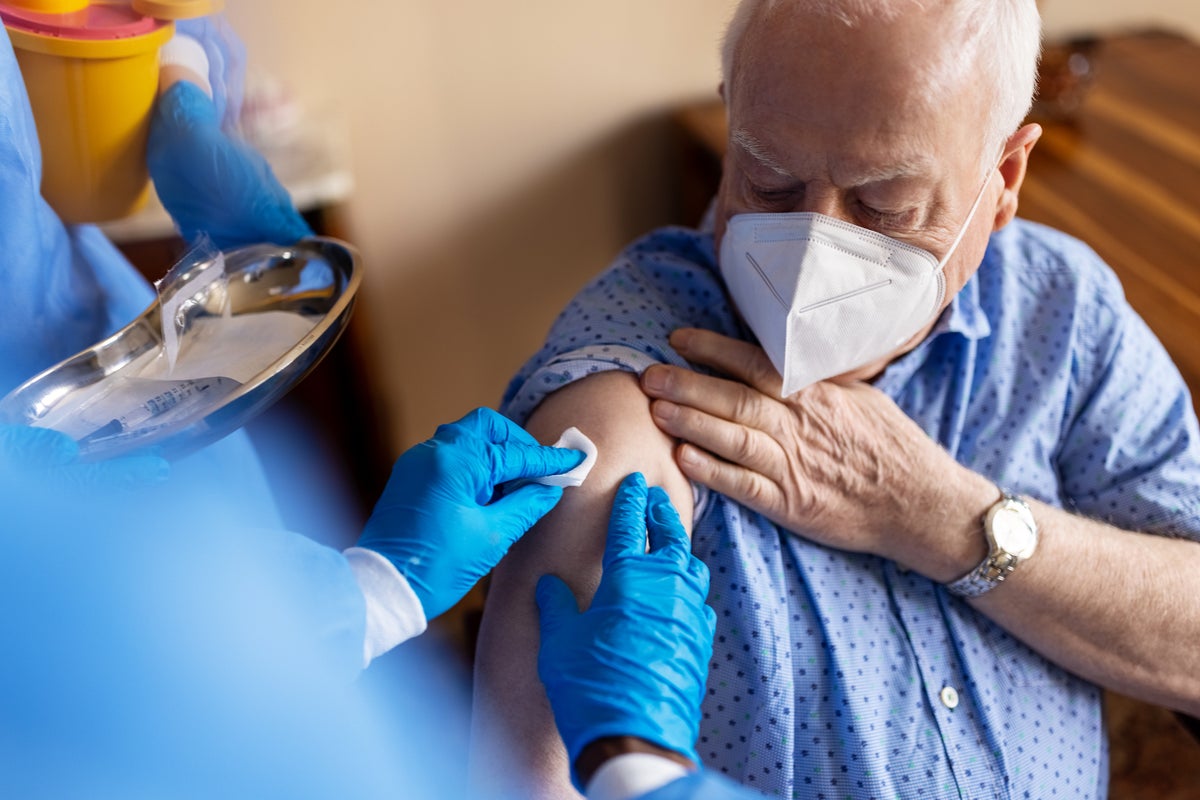As the world continues to navigate the complexities of COVID-19, new research offers a reassuring perspective: annual COVID vaccinations provide significant protection against severe disease and death. This is true even for individuals with prior immunity gained through previous infections or vaccinations. FYM News is committed to bringing you the latest scientific findings to help you make informed decisions about your health. This study underscores the importance of staying up-to-date with your vaccinations, regardless of your past COVID-19 experiences. In this article, we’ll explore the key findings of the study, the effectiveness of current vaccines, and expert opinions on the future of COVID-19 protection.
Key Findings on COVID-19 Vaccine Effectiveness
A recent study published in a leading scientific journal reveals compelling data on the effectiveness of the 2024-2025 mRNA COVID vaccines. The research demonstrated a significant reduction in the risk of severe outcomes:
- 29% reduction in emergency department visits
- 39% reduction in hospitalizations
- 64% reduction in the risk of death
The study, involving nearly 300,000 participants in the U.S., showed that both the Pfizer (COMIRNATY) and Moderna (Spikevax) vaccines were effective across all age groups and for individuals with or without major chronic conditions. According to the study’s authors, these results align with previous research, confirming the vaccine’s efficacy, particularly against severe disease.
“The vaccine is efficacious, particularly against severe disease,” says Stanley Perlman, a coronavirus researcher and professor of microbiology and immunology at the University of Iowa.
Impact of Prior Immunity on Vaccine Response
While the initial COVID vaccines in 2019 offered 94% protection against symptomatic disease, the 2024-2025 shots provide between 29% and 64% protection. This decrease is expected due to the population’s increasing prior immunity, either through infection or vaccination. Nisha Viswanathan, an internal medicine doctor and medical director at UCLA’s Long COVID program, notes that these changes in immunity were anticipated as more people were exposed to the virus.
The research challenges the notion that younger, low-risk individuals do not need the vaccine. The data indicates that while the vaccine is most effective for older individuals and those with comorbidities, it still provides protection for those without risk factors. The study’s inclusive design, featuring sufficient representation of women and younger individuals, strengthens the evidence and offers a more balanced view of vaccine effectiveness across all groups.
CDC Recommendations and Considerations
The Centers for Disease Control and Prevention (CDC) has recommended this year’s COVID shots for adults aged 65 and older and those with underlying health conditions that increase the risk of severe disease. However, the CDC decided that vaccination for healthy people older than six months is optional. This new research suggests that a broader recommendation might be beneficial, given the protective effects observed across all age groups.
It’s important to consult with your healthcare provider to determine the best course of action for your individual health needs. Factors such as age, health status, and exposure risk should be considered when making vaccination decisions.
Looking Ahead: 2025-2026 COVID Vaccines
Although the research primarily focuses on last year’s vaccines, experts believe the findings are relevant to the current season. The virus circulating last year and the current variant both derive from a single precursor virus, ensuring similar severity. Vaccine manufacturers base their formulas on the circulating variant, leading to the expectation that the current COVID shots will perform similarly to those of the previous season.
Limited real-world data is available for the new COVID vaccines, but researchers can make predictions based on antibody titers, which indicate the strength of the immune system’s protective response. The 2025-2026 mRNA vaccines target the LP.8.1 variant. COMIRNATY showed a fourfold increase in neutralizing antibody titers, while Spikevax showed an eightfold increase. While higher titers generally suggest better immune protection, experts believe that a twofold difference will not offer significantly more protection for most people.
The Importance of Increasing Vaccination Rates
Last year, only 21% of the adult U.S. population received a COVID vaccination, a proportion that continues to decline. With reduced vaccine-induced immunity, more people stand to gain from getting vaccinated this year. Experts emphasize that the benefits of vaccination extend beyond individual protection, contributing to community-wide immunity and reducing the overall burden of the virus.
Encouraging higher vaccination rates is crucial to minimizing the impact of COVID-19 on public health. By staying informed and making proactive decisions, individuals can protect themselves and contribute to a healthier society.
Final Thoughts on COVID-19 Vaccinations
The latest research provides compelling evidence that annual COVID vaccines offer significant protection against severe disease and death, regardless of prior immunity. As COVID-19 continues to evolve, staying informed about the latest scientific findings and recommendations is crucial. FYM News is dedicated to providing you with accurate and timely information to help you make informed decisions about your health.
Ensure you consult with healthcare professionals to determine the best vaccination strategy for your specific needs. By prioritizing vaccination and staying vigilant, we can collectively mitigate the impact of COVID-19 and protect our communities. Remember, vaccination not only safeguards your health but also contributes to the well-being of society as a whole.

Leave a Reply